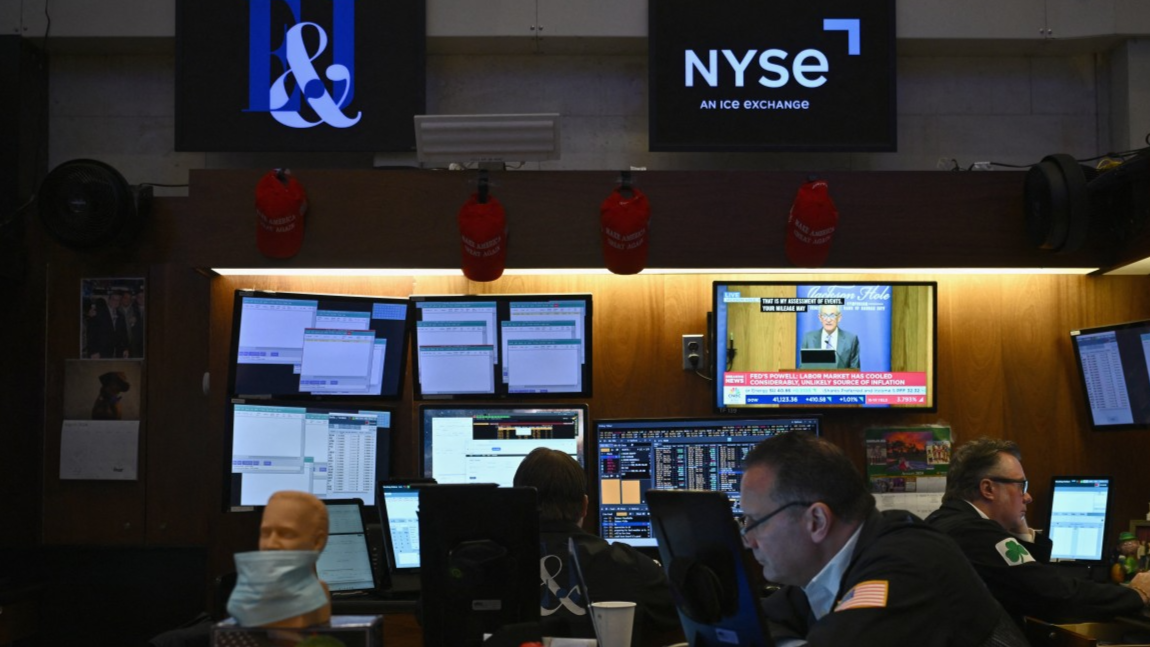
JACKSON HOLE, Wyoming - Growing signs of lackluster growth and risks emerging to the job market overshadowed a gathering of global policymakers at the US Federal Reserve's annual Jackson Hole conference, highlighting the changing trajectory of monetary policy as US and European central banks eye cutting interest rates.
Even as the focus of US and European central bankers shifts from high inflation to softening job markets, the Bank of Japan reaffirmed its resolve to wean its economy off decades of monetary support amid growing signs of sustained price growth.
The divergence in policy direction point to turbulent times for the global economy and financial markets.

The policymakers who met at the annual economic symposium already had a taste of what may come when weak US jobs data earlier this month stoked recession fears and triggered a market rout aggravated by the BOJ's surprise rate hike in July.
So far, many analysts agree with the International Monetary Fund's projection that the global economy will achieve modest growth in coming years as the US achieves a soft landing and Europe's growth picks up.
But such rosy projections rest on shaky ground with doubts emerging over prospects for a US soft landing and euro-zone growth failing to revive.
ALSO READ: Global factories struggled in July as demand waned, PMIs show
While major central banks are veering towards rate cuts, it remains too soon to say whether the moves could be categorized as a "normalization" of restrictive policy or first steps to prevent growth from faltering further.

The uncertainty could leave global stocks and currencies susceptible to volatile swings.
"We could see other episodes of market volatility as markets are in a little bit of an uncharted territory," as major central banks enter a monetary easing cycle after tightening policy to deal with a burst of inflation, said IMF chief economist Pierre-Olivier Gourinchas.
"Japan is on a slightly different cycle. The markets have to figure out what it all means, and markets overreact. So, we will have further volatility," he said.

Growth risks
In his much-anticipated speech Fed Chair Jerome Powell on Friday endorsed an imminent start to interest rate cuts, declaring further job market cooling would be unwelcome.
It was a significant shift from Powell's comments as inflation surged in 2021 and 2022, and cemented the view the Fed was making a pivot from a policy that pushed its benchmark rate to a quarter-century high and held it there for more than a year.
ALSO READ: Global reserve managers upbeat on growth but worry about politics
New research presented in Jackson Hole showed the US economy may be near a tipping point where a continued drop in job openings will translate into faster increases in unemployment.
European Central Bank policymakers are converging on a September rate cut, partly on moderating price pressures but also because of a notable weakening of the growth outlook.

The euro zone economy barely grew last quarter as Germany, its biggest economy, contracted, manufacturing remains in a deep recession and exports have faltered.
"The recent increase in negative growth risks in the euro area has reinforced the case for a rate cut at the next ECB monetary policy meeting in September," ECB rate-setter Olli Rehn said.
Even in Japan, recent inflation data showed a slowdown in demand-driven price growth that could complicate the BOJ's decisions on more rate hikes.
While consumption rebounded in the second quarter, there is uncertainty on whether wages would rise enough to compensate households for the rising cost of living, analysts say.
READ MORE: Eurozone economy seen continuing to recover, but uncertainties loom
"Domestic demand is very weak," said Sayuri Shirai, a former BOJ board member now an academic at Keio University in Tokyo. "From an economic perspective, there's little reason for the BOJ to raise rates."


